Molly Williams interview: Memory and metaphor
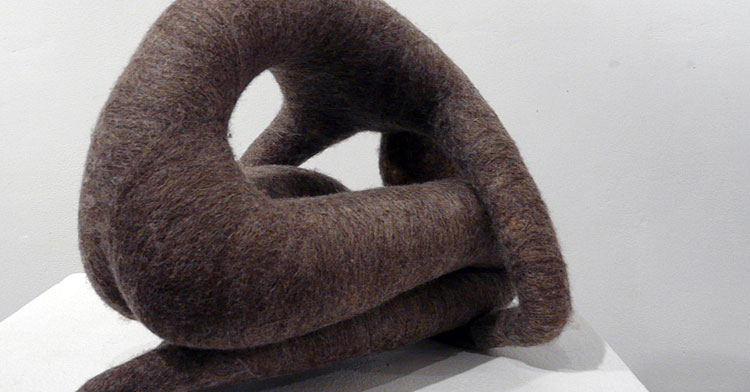
Molly Williams is a contemporary felt textile artist. We were introduced to her work at the Mall Galleries, London, earlier this year and were struck by the personality of the felted sculptures. She has a fascination with the human body and human experience informs much of her work.
She describes felt as ‘an ancient textile that can be manipulated and moulded’. What she loves about working with this particular material is that ‘the physical process requires energy and sweat but there is a spontaneous element along with anticipation of the outcome’. Her subjects have included contemporary dancers and the evolution of the feminine form through childhood, adolescence, young adulthood, marriage and motherhood
We’re sure you’ll agree after reading this vibrant interview, Molly’s passion for what she does and the creativity she brings to her practices are clear, both in the way she talks about art and through the images of her work.
Creating, making and developing my skills
TextileArtist.org: Why are you an artist?
Molly Williams: I just have to be one! I love to create and enjoy the challenge of solving problems in order to realise a piece of art or design. There is something fundamentally essential about creating, making and developing my skills so that my work is not only aesthetically beautiful but also very well crafted.
What or who were your early influences and how has your upbringing/life influence you life?
I was very fortunate to spend my childhood in Africa and Turkey. I was born in 1955 and only came to England in 1969. My mother was an excellent tailor and she encouraged me to sew – I was given my first child’s sewing machine at the age of five and haven’t stopped sewing and making since then. Returning to England in my early teens required a lot of personal adjustment – life here was completely foreign. At school Art was traditionally taught and my work was never highly rated nor was I encouraged so stitching became a hobby. On leaving school I went into nursing and, once I had qualified, I spent seven years travelling and working in USA, Hong Kong, Australia and Saudi Arabia. Cultural textiles and ceramics have always attracted me – they are usually very colourful, echoing the culture and environment and have a spontaneous quality; their patterns are full of memory and metaphor and link us to a mutual past.
From dressmaking, craftwork and soft furnishings to felted sculptures and digital print
What was your route to becoming a textile artist?
I was not initially attracted to textile art – I was experienced in dressmaking, craftwork and soft furnishings and I wanted to research and design costumes. However, ten years ago a friend persuaded me to join her sixth form Textile A level class and I fell in love with learning and costume research. My family was still very young and my only recourse to further study was with Opus School of Textile Art – a distance learning school. The Embroidered Textiles degree revolutionised the direction of my art work.
What is your chosen medium and what are your techniques and processes?
I use wool fibres to make felted sculptures. I love the acquisitive property of wool and use the fibres in the way a ceramicist uses clay; to mould figurative sculptures. Each figure begins with a wire ‘skeleton’ followed by layer on layer of fibres, wet felted, to form the musculature and skin. My most successful pieces of sculpture reflect my thoughts and feelings and, as I work the fibres, their individual personalities and form materialise from my physical and mental effort.
However, felting is not my only passion! I also develop designs for digital print. Developing a pattern begins with research into a particular culture and/or textile and from doodling within a framework of lines or shapes my design emerges. I enjoy this rather random, uncontrived approach and with digital printing designs can be printed onto a range of contrasting materials – for example the acrylic chair and textile throw that I made for the Designer Craftsman exhibition at London’s William Morris Gallery 2012.
The materials have the last word
What currently inspires you and which other artists do you admire
I am still developing felted sculpture and am exploring the merger of found objects and felt, contrasting organic materials, like the dead wood I find on my walks in the woods, with felted wool and silk fibres. I let the materials have the last word in the design of a sculpture.
The sculptures of Henry Moore, Barbara Hepworth and Giacometti inform my work and I am particularly inspired by Deborah Butterfield‘s beautiful drift wood sculptures.
I am currently researching Ottoman textiles and ceramic design for kaftans and patterns for digital printing. Delving into cultural textiles and pattern links me with past craftsmen and artists – I like that feeling of membership.
What environment do you like to work in?
I have a converted garden shed as my studio and that is where I do most of my work. I enjoy listening to Radio 4 and catching up on i-Player while I work and I also listen to music – the classics and musicals. I walk in local woods every day and use this time to organise my thoughts, often resolving problems in the fresh air and tall trees.
What is the best decision you have ever made?
Accepting that place in Cathy Grieves ‘A’ Level class – it was the beginning of my Textile Art journey!
Do you give talks and run workshops or classes? If so where can readers find information about these)
I teach beginners and 3D felt making workshops and am a qualified Design and Technology (Textiles) teacher and, having just taken two years out to develop my own art practice, I am returning to secondary teaching in the autumn 2013. I would also love to teach in Further Education too – there is nothing like the pleasure of inspiring creativity.
Details of my courses can be found on my blog site: textilematters.com
Where can readers see your work this year?
I shall be exhibiting with Prism at the Mall Galleries, London, in May 2013 and I keep my blog site up to date with new work.
Disasters equal artistic intervention
What advice would you give an aspiring textile artist?
Don’t ever give up on ‘mistakes’ – things will not always turn out as you expect however often disasters are in fact artistic intervention at work that can advance the course of your creativity. Don’t be afraid to work with a material that you find uninteresting – 10 years ago I put felt at the bottom of my textile list and today it is right at the top. While I was studying my textile degree I reluctantly accepted a research project on the history of lace. However it became a fascinating study of a remarkable textile that encompassed social and political history, passion and intrigue and migration. There are always people and their stories behind the textile.
Finally – ‘Action follows thought’ so just go for it!
For more info please visit: www.mollywilliams.co.uk
or her blog at: www.textilematters.com
If you’ve enjoyed hearing about Molly’s work why not share this article with your friends on Facebook or Twitter or pin an image on Pinterest by using the buttons below.

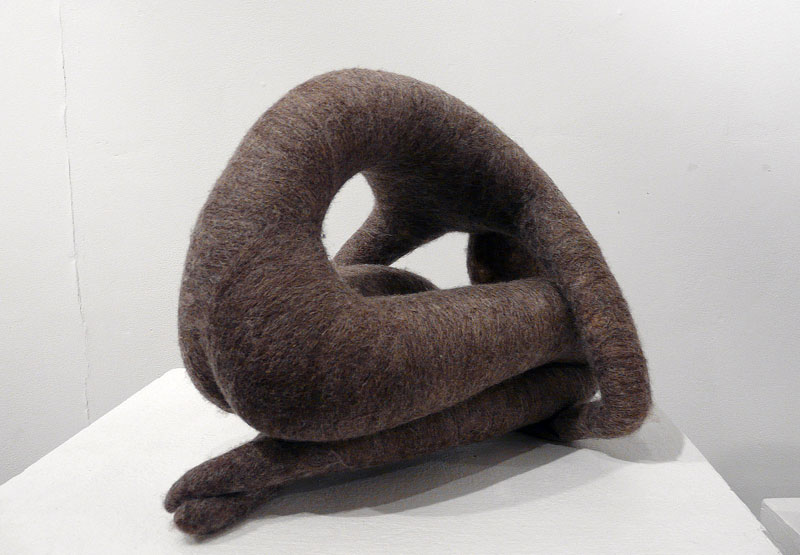
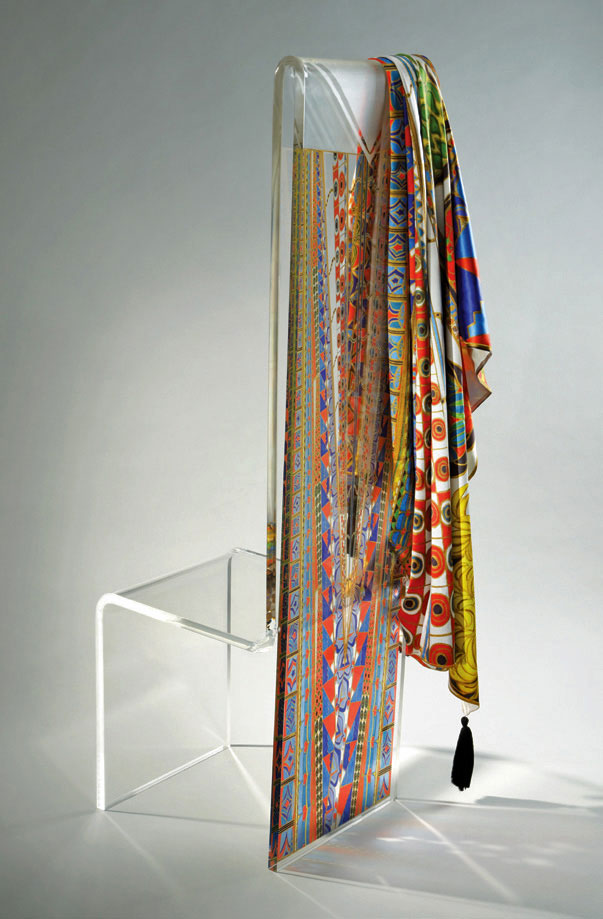
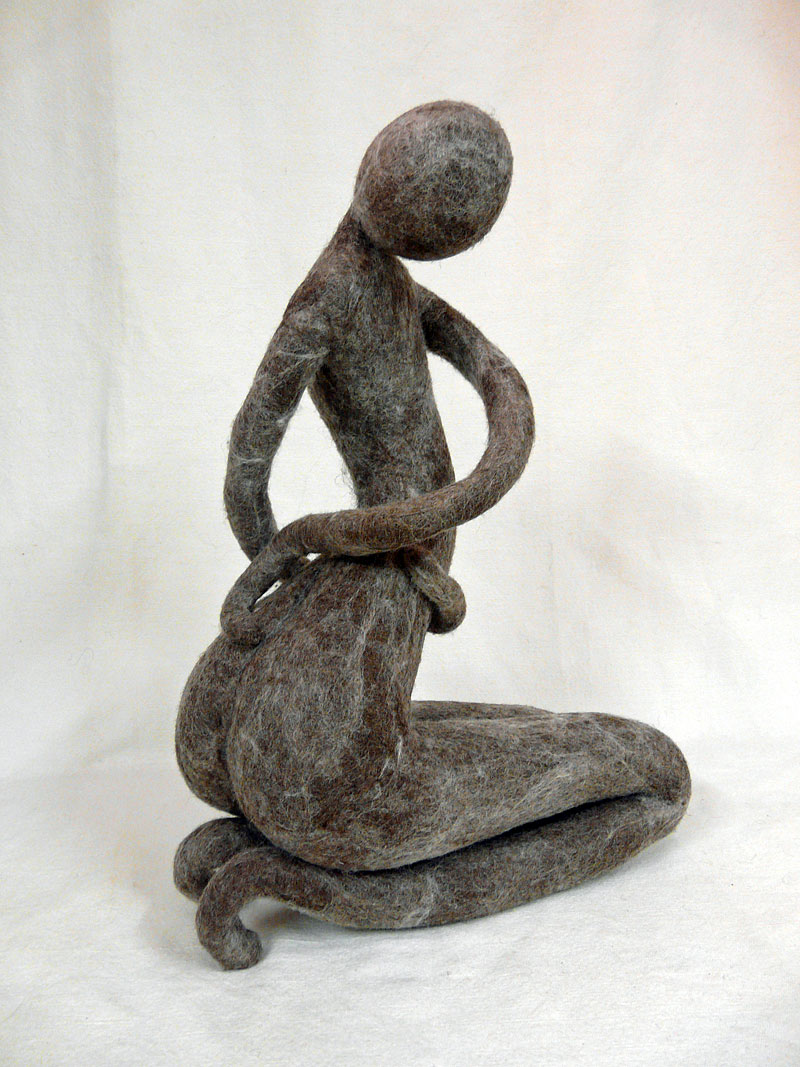
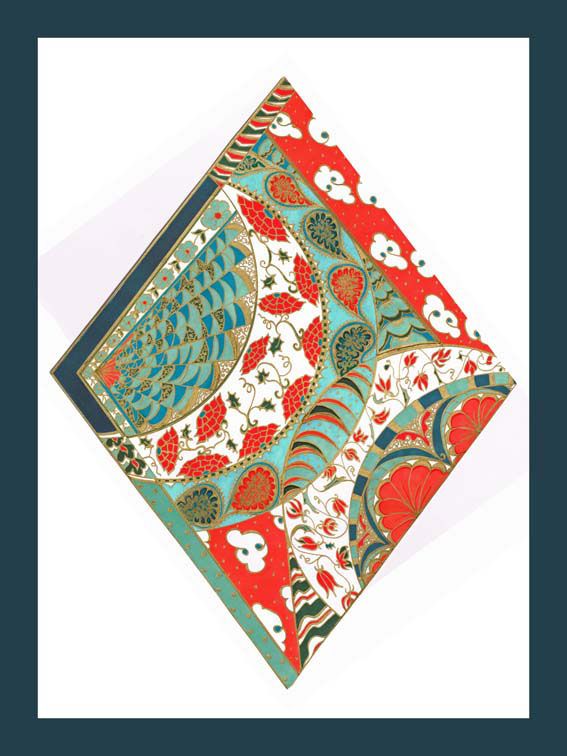















super article Molly and lovely work, so interesting to know about your early influences
Isn’t Molly’s work beautiful? And quite diverse in style. We saw so many great artists at the Mall. Thanks for the comment Carol.